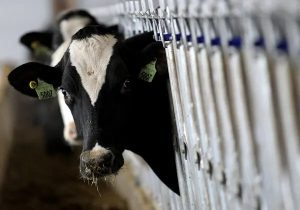
Colombia is home to more than 50 million people, whose diets include ample amounts of butter and cheese.
The U.S.-Colombia Trade Promotion Agreement, signed in 2006, became effective in 2012, the same year U.S. dairy exports to Colombia started to climb, said Monica Ganley, analyst with the Daily Dairy Report and principal of Quarterra, a consulting firm in Buenos Aires. Prior to that, U.S. dairy exports to Colombia were nominal, she added.
During the first five months of this year, U.S. dairy exports to Colombia totaled 24.6 million pounds valued at $40.9 million, according to USDA data. Most of these exports were nonfat dry milk or skim milk powder, although shipments of whole milk powder, cheese, and whey exports were also significant.
“When the trade agreement was signed, some U.S. dairy products immediately received tariff-free access, while others entered a system of tariff rate quotas through which a designated amount of product could enter the country tariff free each year,” she said. “This amount has gradually been increasing over time, and U.S. dairy imports into Colombia will become fully liberalized by 2027.”
Colombia underwent a period of economic liberalization in the 1990s, when several other free trade agreements were signed. Opponents of the U.S.-Colombia and other trade deals claim the agreements have decimated the country’s industrial and agricultural sectors. Following these agreements, Colombia started to import textiles, milk, rice, potatoes, and even coffee, despite the country’s standing as the third largest coffee producer globally. Colombia is the fourth largest milk producer in Latin America, behind Brazil, Argentina, and Mexico.
“In their efforts to lobby the government, Colombian dairy producers purport that the trade agreement with the United States has caused them undue hardship by reducing demand for domestically produced milk, which in turn has put downward pressure on milk prices,” Ganley said.
The Colombian Federation of Livestock Producers has submitted a formal complaint to the Colombian Ministry of Commerce, Industry, and Tourism, requesting that a safeguard be implemented to temporarily insulate the domestic dairy industry from the effects of the U.S.-Colombia agreement. In late June, the Ministry opened an investigation into the impact the trade agreement has had on the Colombian dairy sector.
“Although it remains unclear what specific measures could be implemented as part of the safeguard, they would almost certainly run counter to the spirit of the trade agreement and result in reduced access for U.S. dairy products to the Colombian market,” Ganley adds.
























